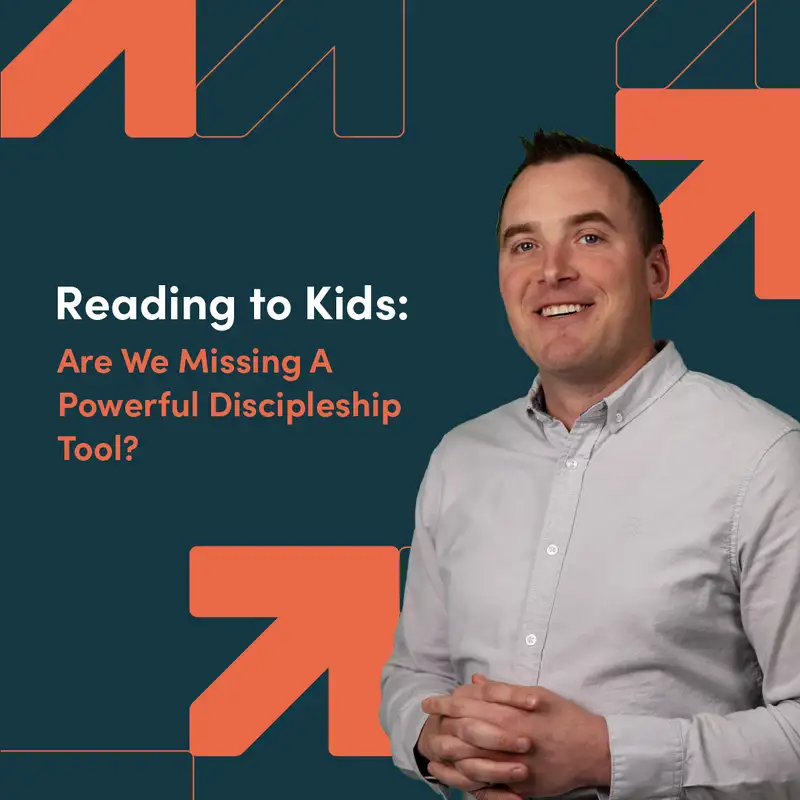Reading to Kids: Are We Missing A Powerful Discipleship Tool?
Hello everyone, thanks for listening to Wake Up, Look Up, a podcast where we connect events happening in real time to the Gospel of Jesus Christ. I'm Zach Weihrauch, and in today's episode, we're talking about reading to kids. And we're asking the question, are we missing a powerful discipleship tool? This is prompted by an article I read recently in the Atlantic, and the author was talking about her own experience of reading to her children as a way to bond with them and even to teach them to help them understand language and concepts. And she is reflecting in the article not only on her own experience, but, um, on how fewer and fewer parents in modern society are reading to their children. She cited a study in the United Kingdom recently that pointed out that in 2012, 64%, six out of every 10 parents in the United Kingdom was reading to their children. The same study was done recently, and only 41% of parents, so four out of every 10 are reading to their kids. That's a pretty big drop and not that many parents. And she's making the point that when parents forgo the opportunity to read to their children, they're missing out on a great bonding and teaching tool. And I completely agree. Listen, we cover the idea of getting kids reading pretty frequently here on Wake Up Lookup, but if you've never thought about this, let me encourage you that not only is reading to your child good for bonding and good for forming them educationally, it's also something the Bible is pretty clear about calling you to do. For example, in Proverbs 22, when you're told to train a child up in the way he should go, that training in the way he should go is a reference to teaching him or her the stories of God and the nature and character of God and how that ought to form. In the context of the Book of Proverbs, it is God himself who is calling out as wisdom in the street, asking, who will listen to him. When you read to your child the stories of the Bible, you are holding out to them this idea that they should trust God, that the key to life really is trusting God. You know, that's one of the reasons God communicates to us through the Scriptures. He intends for them to be read not just by us for us, but by us for our children. Consider in Romans 10, when Paul says, this faith comes by hearing and hearing by the word of Christ. Most of us have a goal of our children one day giving their lives to Jesus. Well, the Bible tells us that faith comes from hearing and hearing from reading the Scriptures. In fact, in that very same passage, Paul, thinking about the nations, will say, how will they ever respond in faith if they've never heard of Jesus? Well, your children, whether you realize it or not, are an unreached people group. How will they respond in faith unless you're consistently holding out to them the stories of a God who saves. Never underestimate the power of the spoken word of God. Consider that when you read the creation account in the book of Genesis, God is creating the universe through His Word, the same word that you have as an opportunity to read to your children. Listen, I don't know if you've thought about this, but your home is the intended seminary for your children, meaning it is the intended place of theological, uh, construction of theological education. Churches can help. I hope they do. Pastors can help. I hope I do. But you are the primary discipler of your children. This is why in Deuteronomy 6, God is letting Israel know that these words which he's communicated, they should teach them diligently to your children. You might say, well, I'm not equipped to teach theology. And maybe you're not, but you are equipped to read to them the stories of the Bible. There are so many great resources out there. The Jesus Storybook Bible, the Gospel Storybook Bible. So many great tools for you. And by the way, here's what you'll find as you read to your children. You're not just shaping and forming them, you're shaping and forming yourself so that over the course of reading, you're becoming someone who is equipped to help them theologically. Discipleship begins by delighting yourself in the stories of God. In the words of the psalmist in Psalm 34, Taste and see that the Lord is good. That's the opportunity you have at dinner time or breakfast or bedtime or whenever it is you choose to read. Listen, I'm not saying you can't read curious George or Dr. Sesh. You should read all those books. Reading to your children helps them and helps you in a variety of ways. But you should also read to them the stories of Jesus so that they might come to know his love. Parents, why aren't we reading to our kids? Here's a new challenge for you, and you can take it or leave it. How about you don't touch your smartphone at home until you've read to your kids? Because if you say you don't have time, I assume that must mean our screen time is at zero only it's not, is it? Well, then we do have time. And in the end. You won't regret all the minutes you didn't spend on Instagram or Facebook or your app of choice. But you just might regret forgoing the opportunity to hold God's love out to your children. Don't miss this opportunity to bond, to bless, and to teach your child God's incredible love for them. It is your job. But more than that, it's your privilege. It's your calling. And if you do it, it'll be your job. Hey, thanks for watching this episode, uh, of Wake Up, Look Up. If you enjoyed it, please help us get the word out by sharing it with someone you think might benefit from it. And while you're here, make sure to subscribe to our YouTube channel to get further content or even download the CCC app, where you'll find even more resources to help you grow in your faith and relationship with Jesus Christ.
Have an article you’d like Zach to discuss? Email us at wakeup@ccchapel.com!
Creators and Guests


